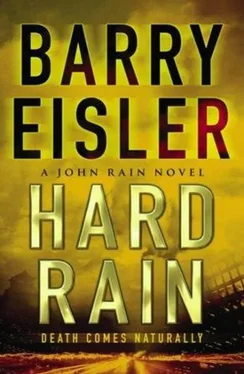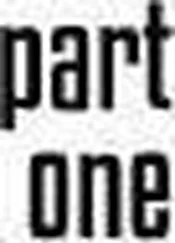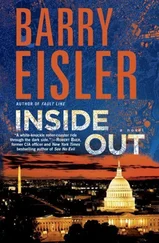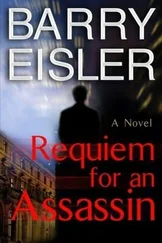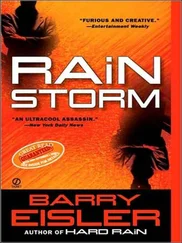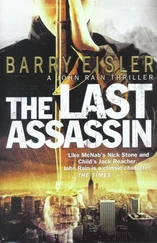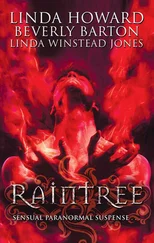“Somehow, I could not see you living in the States,” he went on. “You seemed… comfortable in Japan. I did not believe you were ready to leave.”
“I suppose you might have been on to something there.”
He shrugged. “I asked myself, if my old friend hadn’t really left Japan, but only wanted me to believe that he had, what would he have done? He would have reentered the country under a new name. He would have then relocated to a new city, because he had become too well known in Tokyo.”
He paused, and I recognized the employment of a fortune-teller’s trick, in which the party ostensibly charged with supplying information instead cleverly elicits it, probing under the guise of informing. So far, Tatsu had offered only suggestions and generalities, and I wasn’t going to fill in the blanks for him by confirming or denying any of it.
“Perhaps he would have used the same new name to reenter the country, and then to relocate within it,” he said, after a moment.
But I hadn’t used the same new name when I had relocated. Doing so would have presented too obvious a nexus for a determined tracker to follow. Tatsu must not have been sure of that, and, as I suspected, was hoping to learn more by getting me to react. If I were to slip and confirm that I had used the same name, he would tell me that it was by this that he had managed to find me, thereby avoiding the need to reveal how he had really done it, and leaving the vulnerability intact, perhaps to be exploited again later.
So I said nothing, affecting a slightly bored expression instead.
He looked at me, the corners of his mouth creeping upward into the barest hint of a smile. It was his way of acknowledging that I knew what he was up to, meaning it was useless for him to keep at it, and that he would now get to the point.
“Fukuoka was too small,” he said. “Sapporo, too remote. Nagoya was too close to Tokyo. Hiroshima was possible because the atmosphere is good, but I thought the Kansai region more likely because it’s less distant from Tokyo, to which I guessed you might want to maintain some proximity. That meant Kyoto, possibly Kobe. But more likely Osaka.”
“Because…”
He shrugged. “Because Osaka is bigger, more bustling, so there is more room to hide. And it has a larger transient population, so a new arrival draws less attention. Also I know how you love jazz, and Osaka is known for its clubs.”
I might have known that Tatsu would key on the clubs. During the Taisho Period, from 1912 to 1926, jazz migrated from Shanghai to Kansai, the western region of Honshu, Japan’s main island, where Osaka is located. A host of dance halls and live houses were built in the Soemoncho and Dotonbori entertainment districts, and jazz took off in cafés everywhere. The legacy lives on today in establishments like Mr. Kelly’s, Overseas, Royal Horse, and, of course, the Osaka Blue Note, and I couldn’t deny that the presence of these places had been a factor in my thinking.
I had even recognized, for the very reasons Tatsu had just articulated, that Osaka might be a somewhat predictable choice. But I had also found that I was reluctant to forgo the lifestyle advantages that the city would afford me. When I was younger, I would have reflexively forgone any such comforts in favor of the imperative of personal security. But I found my priorities were changing with age, and this, as much as anything else, was a clear sign that it was time for me to get out of the game.
So sure, knowing me as he did, it wouldn’t be too difficult for Tatsu to assume Osaka. But that wouldn’t have been enough for him to pinpoint me the way he ultimately had.
“Impressive,” I told him. “But you haven’t explained how you were then able to pick me up in a city of almost nine million.”
He raised his head slightly and looked at me directly. “Rain-san,” he said, “I understand your desire to know. And I will tell you. But it is important that the information goes no further, or the crime-fighting effectiveness of the Metropolitan Police Force will be curtailed. Can I trust you with this information?”
The question, and the revelations that might follow it, were intended to show that I could trust him, as well. “You know you can,” I told him.
He nodded. “Over the last decade or so, the major prefectural and ward governments have been independently installing security cameras in various public places, such as subway stations and major pedestrian thoroughfares. There is substantial evidence, much of it gathered from the experience of the United Kingdom, that such cameras deter crime.”
“I’ve seen the cameras.”
“You can see some of them. Not all. In any event, the cameras themselves are not really the issue. What is behind them is what matters. After the events of September eleventh in the United States, the Metropolitan Police Force undertook a major initiative to link up these informal networks of cameras with a central database that runs advanced facial recognition software. The software reads characteristics that are difficult or impossible to obscure-the distance between the eyes, for example, or the precise angles of the triangle formed by the corners of the eyes and the center of the mouth. Now, when a camera gets a match for a photograph from the database, an alert is automatically sent to the appropriate authorities. What had been primarily a psychological deterrent is now a potent anticrime and investigative tool.”
I knew of the existence of the software Tatsu was describing, of course. It was being tested in certain airports and stadiums, particularly in the United States, as a way of spotting and preempting known terrorists. But from what I’d read, the early tests had been disappointing. Or perhaps that was just disinformation. In any event, I hadn’t known Japan was so far ahead in deployment.
“The cameras are tied to Juki Net?” I asked.
“Possibly,” he answered in his dry way.
Juki Net, a vast data snooping and centralization program, went live in August 2002, perhaps inspired by the U.S. Defense Department’s Total Information Awareness Initiative. Juki Net assigns every Japanese citizen an eleven-digit identification number, and links that number to the person’s name, sex, address, and date of birth. The government maintains that no other information will be compiled. Few people believe that, and there have already been abuses.
I considered. As Tatsu noted, if word got out, the efficacy of the camera network would be compromised. But there was more.
“Weren’t there protests about Juki Net’s introduction?” I asked.
He nodded. “Yes. As you may know, the government introduced Juki Net without passing an accompanying privacy bill. Attempts to do so belatedly have been less than convincing. In Suginami-ku there is a boycott. Nonresidents are now seeking to establish an address in that ward to escape the system’s dominion.”
Now I understood why the government would take such care to maintain the secrecy of Juki Net’s connection to the network of security cameras. After all, even if you know it’s there, avoiding video surveillance is hell, so the danger of inadvertently tipping off criminals would be a marginal problem. The real issue, no doubt, was the government’s fear of the protests that would surely result if the public were to learn that the announced scope of the system was really only the tip of the iceberg. If the security cameras were tied together with Juki Net, people would rightly think they had a serious Big Brother situation on their hands.
“You can’t blame people for not trusting the government on this,” I said. “I read somewhere that, last spring, the defense ministry got caught creating a database on people who had requested materials under the new Freedom of Information law, including information on their political views.”
Читать дальше
